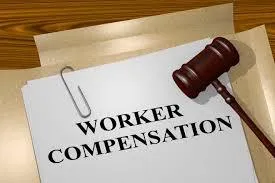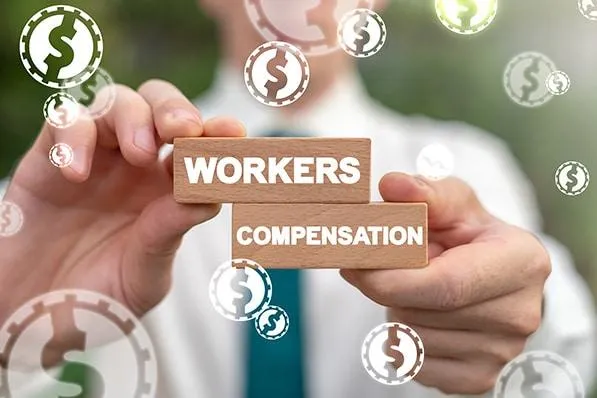Protect Your Rights After a Workplace Injury – Let Us Help You Claim Your Compensation

Can I still receive workers' compensation if the injury was my fault?
Yes, in most cases, you can still receive workers' compensation benefits even if the injury was your fault. Workers' compensation is a no-fault system, meaning it doesn’t matter who caused the injury, as long as it happened in the course of your employment. However, there are exceptions—if your injury was caused by intoxication, drug use, or intentional misconduct, your claim may be denied.
What types of injuries are covered under workers' compensation?
Workers' compensation generally covers injuries or illnesses that occur as a direct result of your job.
This can include:
Acute Injuries: Such as broken bones, sprains, or cuts from accidents like falls, machinery malfunctions, or collisions in the workplace.
Repetitive Stress Injuries: These are injuries that develop over time due to repetitive motions, such as carpal tunnel syndrome or back strain from lifting heavy objects.
Occupational Illnesses: Diseases that are contracted as a result of your work environment, such as respiratory issues from inhaling toxic fumes or illnesses due to exposure to hazardous chemicals.
Mental Health Conditions: In some cases, workers' compensation can cover mental or emotional injuries, such as stress or anxiety, if it can be proven that the work environment or specific job duties caused these conditions.
What benefits are included in a workers' compensation claim?
Workers' compensation benefits typically include:
1.Medical Expenses: Coverage for medical treatments, surgeries, medications, and rehabilitation needed to treat the injury or illness.
2.Lost Wages: Compensation for a portion of your lost income if your injury prevents you from working temporarily or permanently.
3.Disability Benefits: If your injury results in a partial or total disability, you may receive additional benefits based on the extent and permanence of the disability.
4.Vocational Rehabilitation: Assistance in retraining or job placement if you are unable to return to your previous job due to your injury.
5.Death Benefits: If a worker dies as a result of a job-related injury, their family may receive compensation for funeral expenses and a portion of lost income.

Can I be fired for filing a workers' compensation claim?
No, it is illegal for an employer to fire or retaliate against an employee for filing a workers' compensation claim. This protection is in place to ensure that injured workers can seek benefits without fear of losing their jobs. If you believe you’ve been wrongfully terminated or retaliated against after filing a claim, you should consult with a workers' compensation attorney to explore your legal options.
Do Not Sell My Personal Information
Terms & Conditions | Privacy Policy | Marketing Partners | CCPA | Unsubscribe
Copyright © 2024 Paid for Injury ,
All rights reserved.
Advertising paid for by participating attorneys in a collaborative advertising effort. Full details of attorneys involved in this joint advertising initiative are available at Paidforinjury.com. You have the option to select an attorney by name. paidforinjury.com is not a law firm nor an attorney referral service. The information in this advertisement does not constitute legal advice, nor does it guarantee or predict the outcome of your legal matter. Each case is unique and its outcome will depend on the specific laws, facts, and circumstances involved. Choosing an attorney is a significant decision and should not be made solely based on advertisements. We encourage you to request complimentary details about the qualifications and experience of our attorneys. Our advertisements do not suggest a higher quality of legal services compared to other attorneys and do not imply that the participating attorneys are certified as specialists or experts in any field of law. Legal services will only be provided after a formal agreement is signed between the client and the attorney.

Can I still receive workers' compensation if the injury was my fault?
Yes, in most cases, you can still receive workers' compensation benefits even if the injury was your fault. Workers' compensation is a no-fault system, meaning it doesn’t matter who caused the injury, as long as it happened in the course of your employment. However, there are exceptions—if your injury was caused by intoxication, drug use, or intentional misconduct, your claim may be denied.
What types of injuries are covered under workers' compensation?
Workers' compensation generally covers injuries or illnesses that occur as a direct result of your job.
This can include:
Acute Injuries: Such as broken bones, sprains, or cuts from accidents like falls, machinery malfunctions, or collisions in the workplace.
Repetitive Stress Injuries: These are injuries that develop over time due to repetitive motions, such as carpal tunnel syndrome or back strain from lifting heavy objects.
Occupational Illnesses: Diseases that are contracted as a result of your work environment, such as respiratory issues from inhaling toxic fumes or illnesses due to exposure to hazardous chemicals.
Mental Health Conditions: In some cases, workers' compensation can cover mental or emotional injuries, such as stress or anxiety, if it can be proven that the work environment or specific job duties caused these conditions.
What benefits are included in a workers' compensation claim?
Workers' compensation benefits typically include:
1.Medical Expenses: Coverage for medical treatments, surgeries, medications, and rehabilitation needed to treat the injury or illness.
2.Lost Wages: Compensation for a portion of your lost income if your injury prevents you from working temporarily or permanently.
3.Disability Benefits: If your injury results in a partial or total disability, you may receive additional benefits based on the extent and permanence of the disability.
4.Vocational Rehabilitation: Assistance in retraining or job placement if you are unable to return to your previous job due to your injury.
5.Death Benefits: If a worker dies as a result of a job-related injury, their family may receive compensation for funeral expenses and a portion of lost income.

Can I be fired for filing a workers' compensation claim?
No, it is illegal for an employer to fire or retaliate against an employee for filing a workers' compensation claim. This protection is in place to ensure that injured workers can seek benefits without fear of losing their jobs. If you believe you’ve been wrongfully terminated or retaliated against after filing a claim, you should consult with a workers' compensation attorney to explore your legal options.
How long do I have to file a workers' compensation claim after an injury?
The time frame to file a workers' compensation claim varies by state, but in most cases, you should report your injury to your employer immediately or within a few days (usually within 30 days). After reporting, you typically have a set period, often between one to three years, to file your official workers' compensation claim. Failing to report or file within these deadlines could result in losing your right to claim benefits.
It’s crucial to check the specific deadlines in your state and consult with a workers' compensation lawyer to ensure that your claim is filed on time.
Do Not Sell My Personal Information
Terms & Conditions | Privacy Policy | Marketing Partners | CCPA | Unsubscribe
Copyright © 2024 Paid for Injury ,
All rights reserved.
Advertising paid for by participating attorneys in a collaborative advertising effort. Full details of attorneys involved in this joint advertising initiative are available at Paidforinjury.com. You have the option to select an attorney by name. paidforinjury.com is not a law firm nor an attorney referral service. The information in this advertisement does not constitute legal advice, nor does it guarantee or predict the outcome of your legal matter. Each case is unique and its outcome will depend on the specific laws, facts, and circumstances involved. Choosing an attorney is a significant decision and should not be made solely based on advertisements. We encourage you to request complimentary details about the qualifications and experience of our attorneys. Our advertisements do not suggest a higher quality of legal services compared to other attorneys and do not imply that the participating attorneys are certified as specialists or experts in any field of law. Legal services will only be provided after a formal agreement is signed between the client and the attorney.